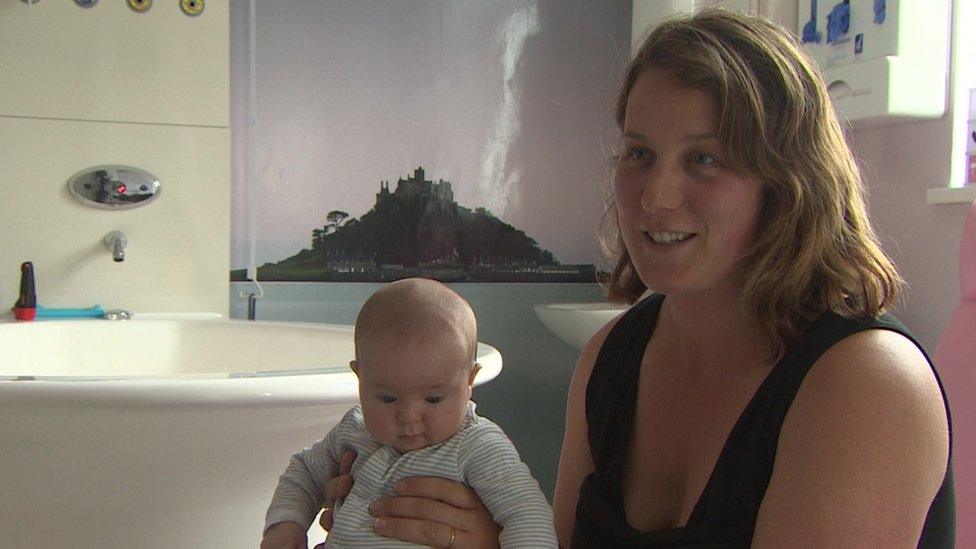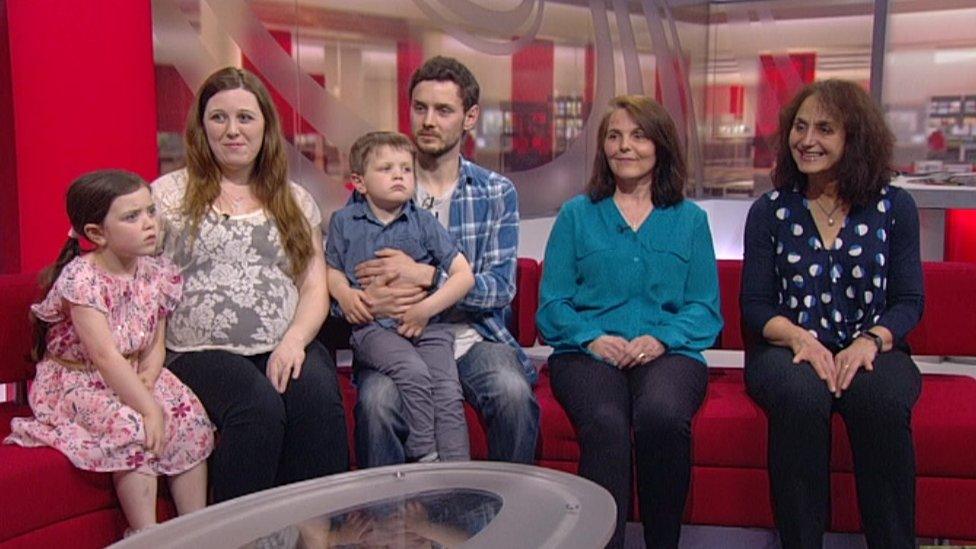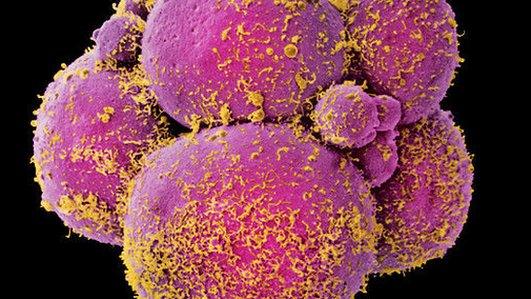Cornwall children's voices urge mums to stub it out
- Published
Children's voices were used in the messages
A hospital is using recorded children's voices to encourage mums-to-be to give up smoking, amid concerns in the area.
According to NHS figures, external the number of women smoking throughout their pregnancy in Cornwall is almost 50% higher than the England average.
The Royal Cornwall Hospital is now relaying recorded messages, such as: "Stopping smoking saves babies lives."
It comes after young mum Joanne Goss said she had to walk through "clouds of smoke" to get into the hospital.

Joanne Goss: "I didn't realise it would amount to as much as this"
Ms Goss said she considered "going to give birth somewhere else".
"I didn't realise it would amount to as much as this, but that's how much it bothered and affected me," she said.
Staff at the hospital said they felt uncomfortable challenging new mums who were lighting up.
So they came up with the idea of using the recorded voices of children of nurses and doctors to send the message.
Their voices are relayed over a speaker which is activated by anyone pressing a button just inside the main entrance.
The aim is to provide a "non-confrontational" way of persuading mothers to stub out cigarettes, said the hospital.
Midwife Trudie Roberts said the move was part of a package of measures aimed at helping mums quit smoking.
"We're hoping it will help make healthier mums give babies the best start in life," she said.
"We are also giving mothers more support and advice on how to quit."
About 15% of women giving birth in Cornwall are smokers at the time of delivery, according to Health England, while the England average is just over 10%.
More news and stories from Cornwall
Smoking during pregnancy can have serious health implications, such as increasing the chances of the baby having gastric or ear nose and throat problems, plus developing diabetes or ADHD according to the NHS., external
It could also result in babies being stillborn or premature.
- Published9 April 2019

- Published5 July 2012
